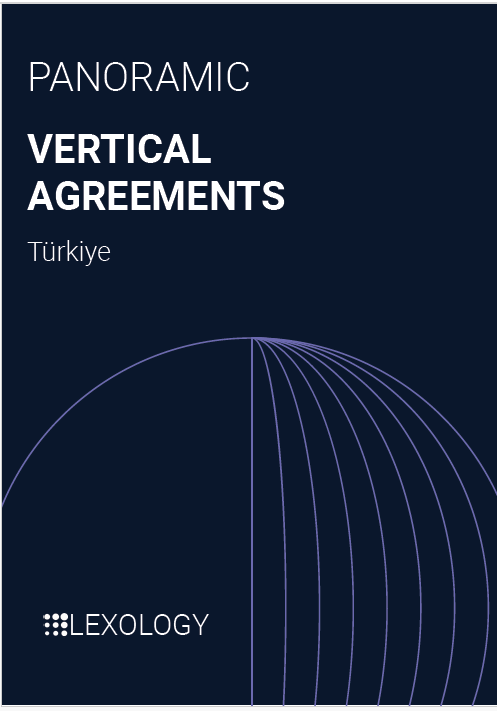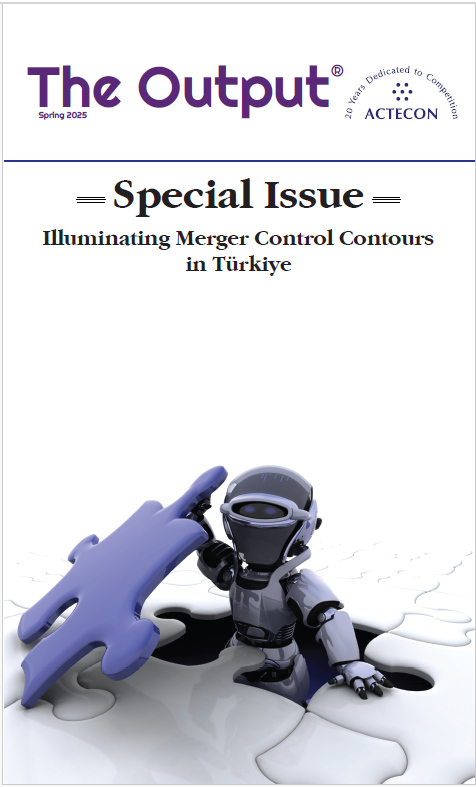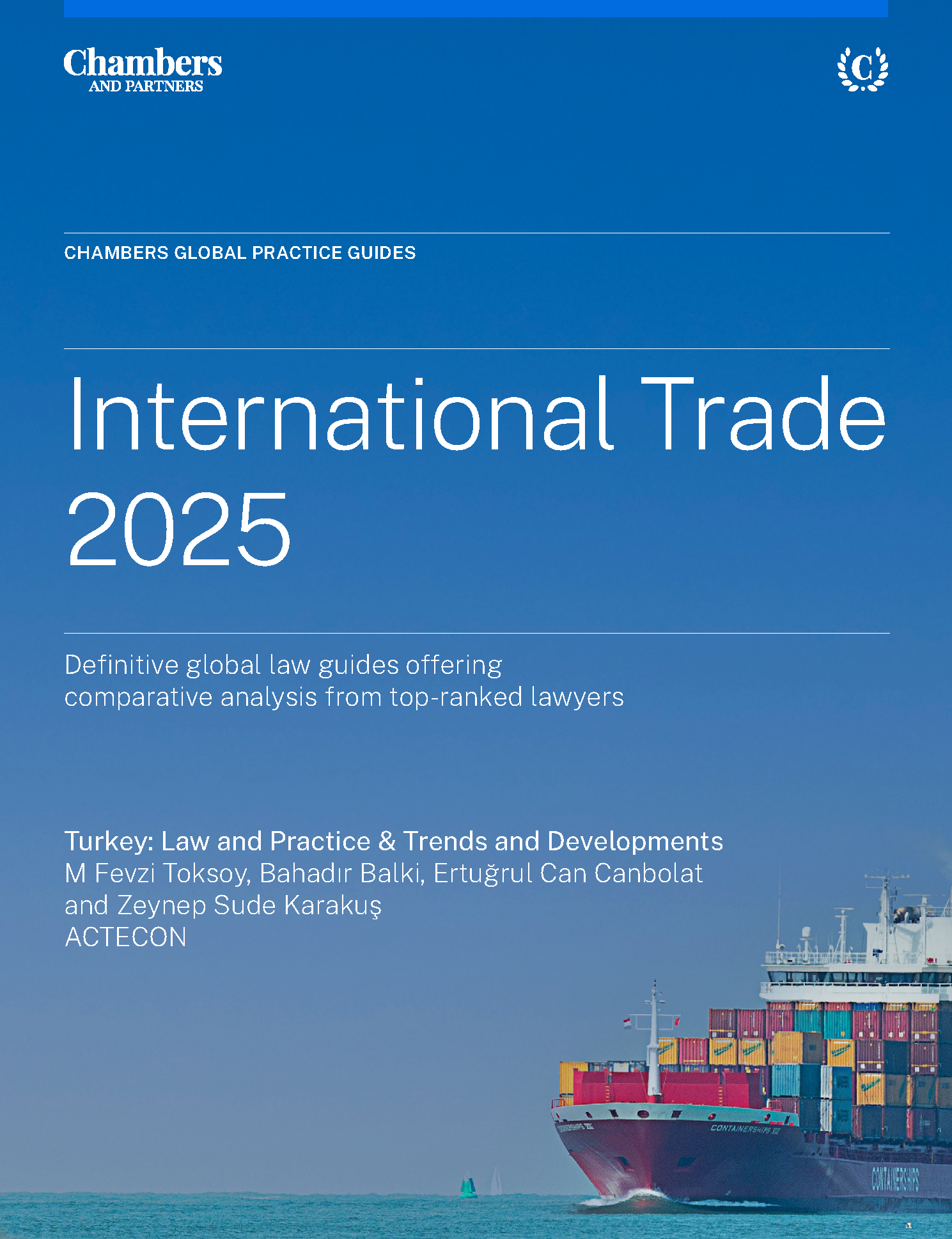Online Food and Grocery Delivery Markets are Getting Crowded Thanks to the TCA’s Yemeksepeti Decision
| Competition Law

Online Food and Grocery Delivery Markets are Getting Crowded Thanks to the TCA’s Yemeksepeti Decision
Article by Bahadır Balkı, Nabi Can Acar, and Burak Buğrahan Sezer
With the developments in online services, our habits in everyday life has been changing rapidly. Nowadays, one can cater any of its needs via websites or simple smartphone apps instantly. And all these developments have also been reflected its effects on maybe one of our most common and frequent habit; grocery shopping. We experienced (and still experiencing) the change from going to our friendly neighborhood grocery store to ordering anything we need anytime, anywhere with the promise of delivery within minutes through our smartphones.
Istanbul was introduced with instant grocery delivery services (probably) invented by a startup called “Getir” meaning “Bring” in English back in 2015; established by the same entrepreneur, Nazım Salur, who launched “BiTaksi”, an app that one can hail a cab 7/24 in anywhere in İstanbul and Ankara. Getir, distinguished itself from traditional grocery delivery services by offering 7/24, instant (aimed at 10 minutes) delivery option via its mobile application and accepting solely online payments. Such distinction required a great number of motorcycle couriers constantly making rapid tours between customers’ houses and local warehouses solely dedicated to online orders. This led to a great number of Getir flagged purple vehicles free floating in streets and turning the start up into a well-known reliable instant grocery brand.
Beside Getir’s blow up amongst İstanbul residents, we also see pink and orange vehicles operated by two different neighboring market giants, introducing their own instant grocery delivery services and strongly challenging the early entrant’s position. Pink ones among these vehicles belong to “Yemeksepeti” (dominant online food delivery platform) under its “banabi” brand; and orange ones are operated by Migros (retail giant) under the “Migros Hemen” application. With the new entrants and their market power in neighboring markets, the dynamics of the instant grocery delivery services have been changing drastically.
Start of a New Rivalry
Following the hype around its instant grocery delivery services, Getir also introduced its online food delivery services on February 2019 under “Getir Yemek” brand, meaning “Bring Food” and offered the newly introduced online food delivery services with its already existing instant grocery delivery services under the same application:

Offering both services under one application was designed to steer Getir’s already existing customer portfolio to the newly introduced food delivery services. This move however initiated the competition with Yemeksepeti, the dominant player in online food delivery market.
Yemeksepeti is an undertaking operating in online food delivery services since 2000. It was sold in 2015 for 589 million USD to Delivery Hero, a Germany-based food distribution company operating in over 40 countries and today, Yemeksepeti is active 76 cities of Turkey[1].
It’s worth to mention that Yemeksepeti has not always been friendly to new entrants and one could argue that Yemeksepeti reached to its current scale due to anticompetitive conducts. Indeed, the Turkish Competition Authority (“TCA”) fined Yemeksepeti back in 2016 and established that Yemeksepeti abused its dominant position via implementing exclusionary MFC clauses placed into the restaurant agreements[2], forbidding restaurants from offering better terms to any other channel. It is underlined by the TCA that in course of Yemeksepeti’s abusive practices, most of the new entrants to the online food delivery market failed and exited due to strictly implemented MFC clauses of the dominant player. It is further concluded that market’s two-sided nature has amplified the effects of this anti-competitive practice. It seems like the TCA’s fining decision is the main reason behind Getir dared to introduce its online food delivery services and hopefully Getir’s safe entry into the online food delivery market is ensured.
While introducing online food delivery services, Getir promoted that the food orders will be delivered specially designed thermo boxes by Getir’s own motorcycle curriers. This promotion was in fact an attempt to distinguish Getir’s services from Yemeksepeti, which does not interact with delivery services. Indeed, delivery services of Yemeksepeti is mostly carried out by restaurants and for the sake of effectiveness, delivering separate orders via one vehicle is a common practice among them. Yemeksepeti’s operation method occasionally criticized by consumers due to poor delivery services and delays. Getir aims to compete with Yemeksepeti by providing better services via its delivery infrastructure and thermo boxes.
Yemeksepeti responded Getir’s entry into online food delivery market by introducing its own online instant grocery delivery services on April 2019 and filling the Istanbul streets with pink vehicles. While introducing its new services, Yemeksepeti designed an interface called “banabi” and updated its application to include both services; adopting the same strategy as Getir came up with while introducing Getir Yemek. Now, while launching the Yemeksepeti App, the consumers are asked to choose between Yemeksepeti and banabi pages:

Yemeksepeti's entry strategy into the instant grocery delivery market constitutes a perfect way of monetizing data and once again reveals the importance large data packs. In fact, since Yemeksepeti occupies a bottleneck in online food delivery market, it has access to a great deal of consumer data including the optional online payment information and already established app widely installed and regularly used by its customers in all around Turkey. It must also be noted that since bundling the apps simply assures visibility and consumer traffic over the new services, Yemeksepeti also sidestepped high advertisement costs. Nevzat Aydın, the CEO of Yemeksepeti also confirmed the winning strategy by tweeting “We received 1 Millionth order @banabi. Moreover, within six months from its start. It took seven years @Yemeksepeti (…)” on 21 October 2019.
During a YouTube interview made on May 2019 Nevzat Aydın stated that “We are utilizing from Yemeksepeti. Yemeksepeti is going well and is a profitable operation. We take the risk of not being profitable [on banabi] and we choose to give a portion of our Yemeksepeti profits to our customers for the sake of banabi.” Indeed, Yemeksepeti advertises banabi as offering a wider product range, being cheaper than its rivals and accepting cash payments.
Retail Giant Shows Up
Migros also introduced its own instant grocery delivery services under the “Migros Hemen” meaning “Migros Instant” application on February 2019. Unlike its rivals, Migros is not a startup, but an organized fast-moving consumer goods retail giant with 2186 stores present in every city of Turkey[3]. To understand its scale, we must remember that Migros took over Tesco’s Turkish subsidiary Kipa back in 2017 and the transaction was subjected to conditional approval of TCA[4]. Unlike Getir or banabi services, Migros does not deliver 7/24 and its “instant” services is claimed to be on average 30 minutes, considerably longer than Getir’s or banabi’s delivery time, both aimed at 10 minutes. Despite its shortcomings, Migros have the advantage of being familiar with online grocery delivery services and this know-how may pose an advantage over the start-up rivals. In fact, “Migros Sanal Market”, online grocery delivery services were introduced back in 1997. However, it is impossible to qualify Migros’ undergoing online grocery delivery activities with Migros Sanal Market as “instant” because consumers can only place an online order and specify a future delivery time interval. In this picture, Migros Hemen may be deemed as weaker than its rivals due to its slower and workhour limited delivery services and yet, Migros Hemen is being advertised as offering wider product range and being cheaper than its rivals.
Competition dynamics of instant grocery delivery services

As the competition is heating up, there are also other relatively smaller undertakings entering the same market such as istegelsin and Glovo. Even though these undertakings have much smaller market shares, they display the growing characteristic of the concerned market.
In order to grasp the nature of the instant grocery delivery services market, the must have power of succeeding should be assessed: the user data and visibility. Since the instant grocery delivery services market is mostly based on smartphone apps, it is important for the undertakings that their apps are downloaded by as much consumers as possible. Yemeksepeti has an advantage here due to its TCA-certified dominant position in the food delivery services. Indeed, Yemeksepeti announced in 2018 that it has 11 million current users; which rounds up to a very high rate of visibility. With the additional fuel from powerhouse parent Delivery Hero, it wouldn’t be wrong to state that Yemeksepeti has a clear advantage over Getir.
Migros on the other hand has a deeper knowledge on retail industry than both parties and most probably is more vertically integrated than any other player thanks to over the years established supply chain. It also has a considerable amount of consumer data as well thanks to a customer loyalty program operated under “Migros Club Card” for 18 years. Which is the biggest loyalty program in Turkey with 12 million active users in 2018[5].
It is commonly acknowledged that competition law shall ensure the protection of competition by performing the necessary regulations and supervisions and the reason behind their existence is maximizing the consumer welfare. While looking at the heated competition in instant delivery services (both in food and grocery), it comes to mind that TCA’s Yemeksepeti Decision is in fact the reason behind these markets are having new entries. If Yemeksepeti continued its anti-competitive conduct, Getir most probably wouldn’t have attempted to enter into online delivery food market. In such case, Yemeksepeti wouldn’t have felt obliged to respond Getir with making a new investment into an unknown territory and of course the retail giant Migros wouldn’t deem the instant grocery services as a new opportunity. The real beneficiary of the competition between these companies are of course consumers, dealing with greater choice and lesser prices.







